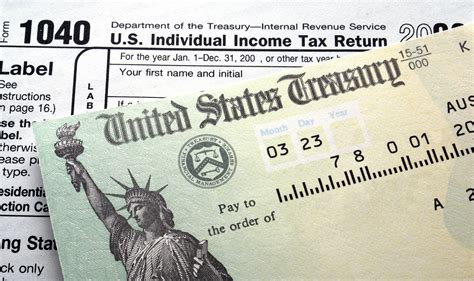As taxpayers eagerly await their tax refunds or rebates, it’s crucial to understand the ins and outs of IRS tax rebate checks. In this guide, we’ll explore what a tax rebate check is, who might qualify, how to claim it, and what to do if you encounter issues with your rebate. Let’s start by demystifying the concept of tax rebates.
What is an IRS Tax Rebate Check?
An IRS tax rebate check is a payment made by the Internal Revenue Service (IRS) to eligible taxpayers. This check typically serves as a return of excess taxes paid in the previous year or as part of government stimulus efforts to provide financial relief to taxpayers. The amounts can vary based on income, filing status, and number of dependents, making some individuals and families eligible for more substantial rebates than others.
Who Qualifies for a Tax Rebate Check?
Qualification for a tax rebate check depends on various factors, including your taxable income, filing status, and eligibility criteria set forth by the IRS. Generally, taxpayers who filed their tax returns for the previous year are eligible for rebates. Here’s a closer look:
- Income Thresholds: Most rebate checks are targeted towards individuals or families under a certain income limit. Check the IRS website for current thresholds.
- Filing Status: Your filing status (single, married filing jointly, head of household, etc.) will impact your eligibility and the rebate amount.
- Dependents: Claiming dependents on your tax return can also affect the amount of the rebate you qualify for.
How to Claim Your Tax Rebate Check
If you believe you qualify for a tax rebate, the next step is to ensure you properly claim it when filing your tax return. Here’s how:
- File Your Taxes: Complete your tax return for the applicable year. Ensure all income, deductions, and credits are accurately reported.
- Use IRS Forms: Utilize the correct forms, such as the 1040, to report your income and claim any eligible rebates or credits.
- Check for Updates: Stay informed about any recent legislation that might impact tax rebates, including changes enacted in response to economic conditions.
- Submit Your Return: File your tax return electronically or by mail, and make sure to keep a copy for your records.
How Much Can You Expect to Receive?
The amount of the tax rebate check can vary significantly based on various factors. Recent rebate checks have been structured in a way that provides large payments to lower and middle-income families. While historical amounts have ranged anywhere from a few hundred to several thousand dollars, the specific payment will depend on current legislation and individual taxpayer circumstances.
Tracking Your Tax Rebate Check
Once you’ve filed your tax return and claimed your rebate, you might be wondering when you’ll receive your check. To track your rebate, follow these steps:
- Use the IRS “Where’s My Refund?” Tool: This online tool provides updates on the status of your rebate check.
- Phone Assistance: If you prefer speaking to a person, you can call the IRS directly for assistance.
- Check Your Bank Account: Many rebate checks are deposited directly into taxpayers’ bank accounts; monitor your account for incoming payments.
What to Do If You Don’t Receive Your Rebate Check
If you don’t receive your rebate check within the specified timeframe, there are several steps you can take:
- Verify Your Eligibility: Double-check that you meet all eligibility criteria.
- Check for Errors: Review your filed tax return for any mistakes that could have impacted your rebate.
- Contact the IRS: If you’ve ensured everything is accurate and you still haven’t received your check, contact the IRS for assistance.
Conclusion
Unlocking the IRS tax rebate check can be a straightforward process, provided you understand the eligibility criteria and take the necessary steps to properly claim your rebate. By filing accurately and staying informed about tax laws, you can ensure that you receive any money owed to you. Lastly, if you encounter any complications, remember that the IRS offers resources and support to help you navigate any issues that may arise.
FAQs
1. When should I expect to receive my IRS rebate check?
The timing for receiving your rebate check can vary. Generally, expect processing times to take several weeks after you file your return. The fastest way to receive your rebate is through direct deposit.
2. How do I check the status of my tax rebate check?
You can use the IRS “Where’s My Refund?” tool available on the IRS website to check the status of your rebate check.
3. What if I misplaced my rebate check?
If you’ve lost your rebate check, you should contact the IRS for guidance on how to request a replacement check.
4. Are there any penalties for claiming a rebate I’m not entitled to?
Yes, claiming a rebate without qualifying can lead to penalties and interest on the amount improperly claimed. Always ensure your eligibility before filing.
5. Can I still receive a tax rebate if I owe the IRS money?
In most cases, if you owe back taxes, the IRS may deduct what you owe from your rebate check. It’s advisable to clear any outstanding debts to receive the full benefit of your rebate.
This article provides a comprehensive understanding of IRS tax rebates, qualified individuals, claiming processes, and related questions while maintaining the requested format.
Download Irs Tax Rebate Check
